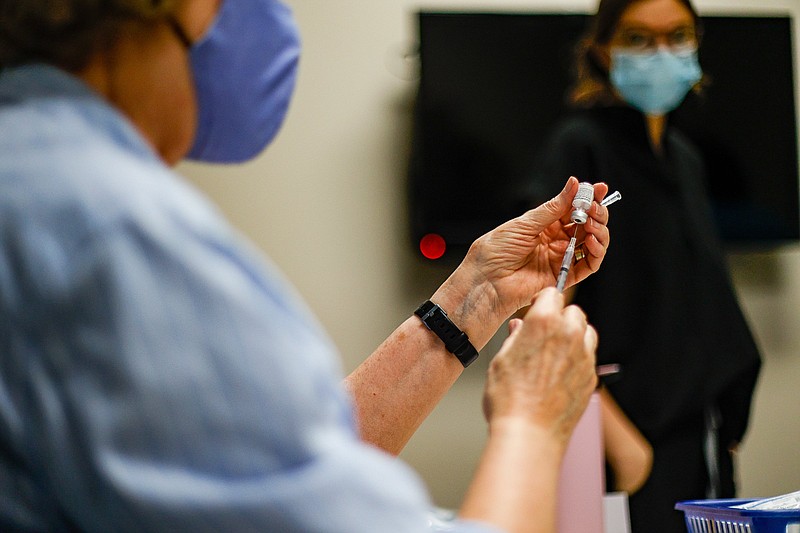No one wants to go backward.
That's why Hamilton County Schools are using snow days to give students an extra two days away from school after their Labor Day off to help slow the spread of COVID-19.
The thinking obviously was the total of five days away from classrooms would prevent the spread of the virus, allow many of the sick to get well, permit some of those eligible to get vaccines and stave off a return to online classes.
Elsewhere, Grundy and Marion County schools will be closed all this week, and Bledsoe, Meigs, Polk and Sequatchie County schools all have closed at some point this year due to illness or from staff shortages due to illness.
The 2021-2022 school year is now the third straight to be affected by the coronavirus pandemic. In the 2019-2020 school year, Hamilton County students spent more than two months in all online classes. In the 2020-2021 year, all students spent a part of the first quarter of the year online, and many spent much longer. County officials would like to do what they can in the 2021-2022 year to keep all of their classes in person.
The reason is simple, and the research has been the same across the country. K-12 students, no matter how sophisticated the technology, no matter how generous the partners, no matter how skillful the teachers, do not fare as well with online classes as they do in person.
And, as Hamilton County Schools administration officials said in a roundabout way last week, having reviewed the results of the district's TVASS tests, many of the students who most need to make learning strides are the ones who haven't done as well with online learning.
What they said is that white students, Asian students and English language learners did not see much fall-off from virtual learning. It would follow, then, that Black students, who account for nearly 31% of students in the district, had the most difficulty.
Dr. Nakia Towns, interim superintendent of Hamilton County Schools, had much to celebrate in the results of the district's 2020-2021 TVASS tests last week. Sixty-seven of the district's 79 schools, among other positive results, met or exceeded growth standards.
Having to return to online classes, whether for a short or long time, though, means a slowdown in learning for some students.
But, of course, there are options. And the most proactive one of those is for teachers, parents and students (where eligible) to get a vaccine. The more vaccines in the arms of those able to get them is the biggest deterrent to a return to online classes.
And what difference does it make for those who contract the virus? The weekly snapshot from Vanderbilt Medical Center in Nashville, released Tuesday, showed 218 hospitalized with COVID-19 (190 unvaccinated), 53 in intensive care (49 unvaccinated) and 17 on ventilators (all unvaccinated).
If it seems strange to tie improved student learning to vaccines, it is. But it is our current reality.
